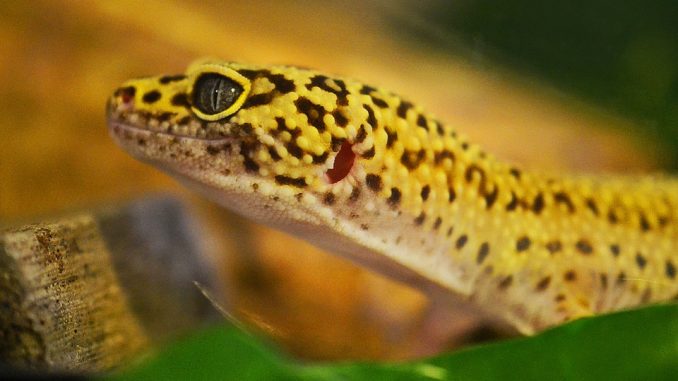
Geckos are a popular pet for lizard lovers and are readily available from many captive breeders and from pet shops.
Originally from subtropical and tropical regions geckos are a small lizards generally with no eyelids, retiring demeanour, nocturnal with many having expanded toe pads to allow them to stick to even the smoothest surfaces, even glass. With the help of human travelling, geckos have colonised many areas of the world beyond their natural homeland.
A well looked after gecko can live upward of five years with some species living for 20 years.
Housing
The housing for a gecko depends on the species, but most can be ket in a 75 litre tank, an old fish tank that no longer holds makes a perfect home.
Substrates for your tank can be a difficult choice, many owners will avoid sand as this can be ingested with food and is never suitable for juvenile geckos. Paper towels are an excellent option, although not very attractive they are practical. Shredded paper can allow for geckos to burrow, although again there is a risk of ingestion, although not as risky as sand. Specialist reptile carpet is available from pet shops and is easily cleanable. Always avoid wood chips or shavings and aquarium gravel.
Hiding areas are necessary and many species of geckos are quite shy. Half logs hollowed out make great hiding places and allow geckos to climb over as well. Some species of geckos love to climb and others are land dwelling. If their toes have expanded pads then the species will be climbers and will require branches to to climb on, otherwise they will be land dwelling.
Feeding and water
A shallow bowl of water should be required at all times for you gecko, not just for drinking but to aid the humidity of the tank. Some geckos also love to soak in it as well.
Geckos are mainly insectivores and will eat crickets, waxworms and mealworms. These should be gut loaded (fed with nutritious food) at least 12 before giving to your lizards.
Heating
Geckos are mainly nocturnal so do not require any UV lighting systems. Using a red heat lamp can provide them with heat at night but not disturb their nocturnal rhythms with too much light. A regular white bulb can be used in the day to provide a basking light. Under tank heating pads are not necessary and can burn geckos if they bury down next to the glass.